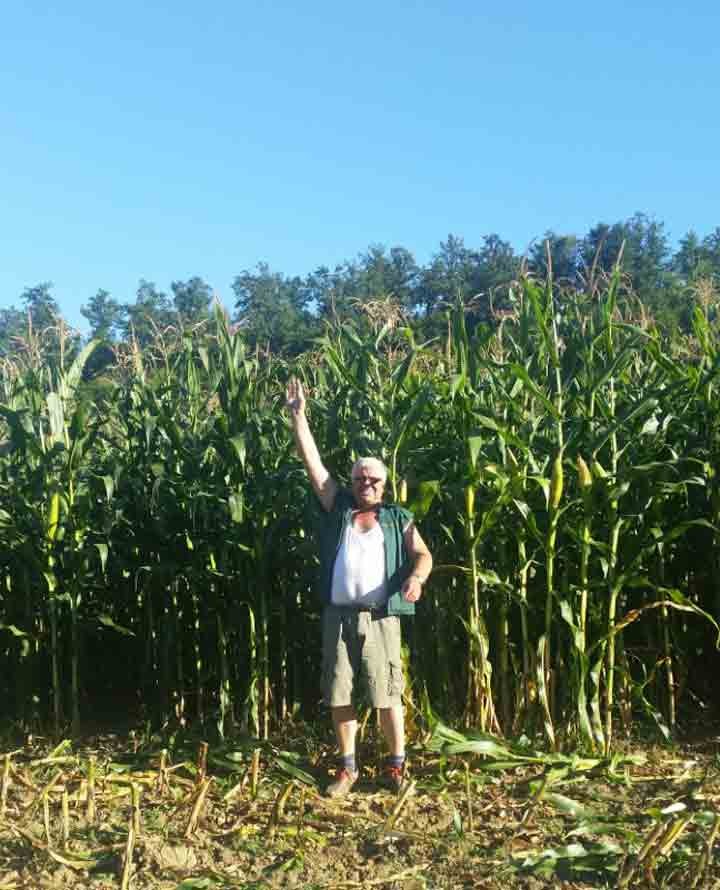A teacher, former MP, farmer, dairy producer and chairman of the Regional Association of Milk and Meat Producers in the region of Bulgaria’s Targovishte are some of the points in the business card of Hasan Çırak, whose activity is concentrated in the village of Kamburovo (northeastern Bulgaria).
"The beginning was difficult, very difficult. The company had debts and the production volume was very small – 5 cows and 8 calves. We did not have land or agricultural equipment. We had to invest in 3 areas - livestock, machinery and farmland. During these years we have bought nearly 8 thousand decares of land, rented another 10 thousand decares, implemented 4 projects under European programs related to livestock, agricultural machinery, construction and reconstruction of existing buildings,” the farmer recalls.
Hasan Çırak has been implementing a fifth project. He told Radio Bulgaria about the reasons why many of his colleagues closed their farms.
"European projects require us to meet European criteria and standards. They helped us remain in the industry, especially in times when many livestock farmers went bankrupt,” the farmer says. “Since 2003 I have been the chairman of the Regional Association of Milk and Meat Producers in the region of Targovishte. At that time more than 90 farmers were members of the association and now we are about 15. Farm work is not attractive at all and it is difficult to find workers. Many colleagues were unable to invest in their farms because of lack of funds and were later forced to close them because they could not meet European requirements and standards."
We asked him if purchase prices of milk and meat in Bulgaria were appropriate.
"I think they are appropriate despite the fact farmers often complain about low prices. We are already part of the common European home and prices in European countries are not much different than ours. The difference actually ranges between 1 and 5 cents. The truth is that we need to produce more good-quality milk at a lower cost,” Hasan Çırak says.
 We asked the farmer about the scale of his farm these days.
We asked the farmer about the scale of his farm these days.
“The arable land is about 17 thousand decares. We grow mainly wheat, oats, barley, sunflower and corn. The animals are about 450, out of which 160 milk cows, about 70 heifers, and the rest are calves,” sums up the farmer from the village of Kamburovo.
Currently, he is not thinking of expanding his farm, in which his entire family work, and especially his daughter and her husband who are "motivation to continue and not give up."
Speaking about closed production cycle, Hasan Çırak says:
“We also had that intention in mind, but after that, Ordinance No. 20 came out, which provided good opportunities for processing own produce, but at the same time restricted farmers to processing just 30% of the milk they produced and obliged them to sell the rest to large dairies. At the same time it did not allow us to sell on the markets of more than 2 neighboring areas, which in my opinion is a restriction of economic rights, I would say even constitutional rights. I have asked three ministers of agriculture this question, but there is no change. Branch organizations are weak and we cannot protect our interests. Processing companies head the most important branch unions of farmers and they naturally protect the interests of processors. This is partly due to the lack of law on branch organizations. There are already 4 draft laws in existence and I don't know why nothing is not adopted. Things continue to stay the same,” farmer Hasan Çırak says in conclusion.
English: Alexander Markov
Photos: private libraryRadmila Sekerinska from North Macedonia appointed NATO Deputy Secretary General NATO Secretary General Mark Rutte has appointed Radmila Sekerinska from North Macedonia as the next NATO Deputy Secretary General. “I am happy to announce..
The traditional Bulgarian Christmas picnic, organized by the Bulgarian Cultural and Social Association "Rodina - Sydney" and the Bulgarian School "Dr. Petar Beron", will take place on December 8 , 2024 in St. Leonards Park in Sydney. "We have..
The Bulgarian national minority in Albania is one of the largest in the country, according to data from the latest official population census. A total of 7,057 individuals identified as Bulgarians. For comparison, 23,000 people identified as Greeks,..
The Varna Regional Library "Pencho Slaveykov" has acquired a humanoid robot. It was unveiled by the library's director, Radka Kalcheva, during the..

+359 2 9336 661
